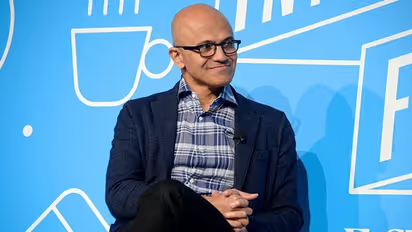Testing AI's smartness and capability the Satya Nadella way; Microsoft CEO has only one question

Synopsis
Microsoft CEO Satya Nadella used one specific question to gauge an AI model's potential. "Rumi's poetry was successfully translated into Urdu and subsequently into English. In one attempt, GPT-4 succeeded," he added.
It appears that Microsoft CEO Satya Nadella is using one specific question to gauge an AI model's potential. In a recent interview with Wired, the CEO of the software behemoth disclosed the same. "There is one query I always sort of use as a reference. Machine translation has been with us for a long time, and it's achieved a lot of great benchmarks, but it doesn't have the subtlety of capturing deep meaning in poetry," Nadella said.
"I had fantasised about reading Persian poetry as a child in Hyderabad, India, especially Rumi's poetry, which had been translated into Urdu and subsequently into English. In one attempt, GPT-4 succeeded. It was more than just a computer translation; it protected poetry's independence across two linguistic barriers. And that's fine too," he said.
Nadella referred to this as the appropriate test for an AI model since translations may be unpredictable, especially in poetry. He explained that he was trying to determine if GPT-4 would only provide a "machine translation" or would maintain the "sovereignty," as he described it, of Rumi's writing.
For those who don't know, Jalaluddin Rumi—or simply Rumi—was a Persian poet who lived in the first half of the thirteenth century. His creations are highly praised all around the world.
Nadella's comment comes at the same time when Alphabet Inc advised its employees about how they utilise chatbots, including its own Bard. As per the report, the company has advised employees not to enter its confidential materials into AI chatbots, the people said and the company confirmed, citing long-standing policy on safeguarding information. Alphabet also alerted its engineers to avoid direct use of computer code that chatbots can generate.
Also Read | Instagram introduces broadcast channels feature: What is it? How to use it?
Find the latest Technology News covering Smartphone Updates, AI (Artificial Intelligence) breakthroughs, and innovations in space exploration. Stay updated on gadgets, apps, and digital trends with expert reviews, product comparisons, and tech insights. Download the Asianet News Official App from the Android Play Store and iPhone App Store for everything shaping the future of technology.